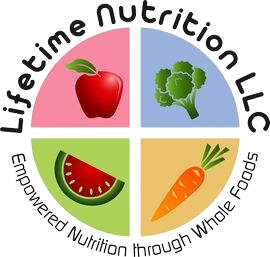|
One of my jobs as a nutritionist is educator, to think about things that aren’t being talked about. When it comes to food, nothing is cut and dry. Studies can help us in making an educated decision, but they are typically biased in favor of what those who paid for it want. So you wind up with lots of studies that contradict each other and what you hear about are the studies that are well funded. Or you will hear the contradicting studies for instance one day it seems eggs are good for you and the next they are not. So for the above question, I don’t have a definitive answer, and I don’t think anyone else does either but I would like to talk about some concerns I have regarding this.
So let’s talk about fish oil supplementation. For many who don’t consume fish, they turn to supplementation. Even if they do consume fish doctors typically recommend fish oil supplements to decrease inflammation, because today everyone has inflammation! Here’s the problem with this, to get the oil from the fish, the entire fish is minced and the oil is extracted using heat and chemical solvents. The Omega 3 fatty acid is an extremely sensitive oil and can become rancid from exposure to heat, light and oxygen. So the oil is more than likely rancid prior to being put into the capsule to be sold. And low quality supplements don’t remove the toxins that were originally in fish or the chemical residue so toxins are increased. Professional products do test for toxins and typically there is no chemical residue, but the concern about rancidity is still there. I have tested the Omega fatty acid profile on clients and most are deficient in Omega 3 even in people taking fish oil supplements and consuming fish on a daily basis They also have high inflammation markers and Omega 6 fatty acids (inflammatory) are higher than their Omega 3 fatty acid (anti-inflammatory) numbers. So a change of diet is typically needed. Omega 3 (and 6) fatty acids are essential fatty acids, meaning the body can’t make them. So it’s important for you to get them, but fish is not the only source. In fact, the fish don’t produce it; they eat algae on the ocean floors that contain it. Wouldn’t it be better to skip the fish and use the algae as your Omega source? Algae can be grown in a lab in controlled conditions so there is no contamination issue. You could also consume Spirulina and sea vegetables which have an added benefit of lots of micronutrients. There are other plant sources but conversion is necessary for it to become an Omega 3 and there are various reasons that would diminish capability of conversion. For example: Deficiencies micronutrients such as zinc, magnesium, calcium, biotin, B 3, B6, Vitamin C; medications, alcohol, advancing age, high sugar consumption, genetics, high omega 6 consumption, etc. Plant based sources have many benefits even if you don’t convert the Alpha Linoleic Acid (the parent form) easily. Plant sources: Flax seeds, Chia seeds, Hemp seeds, green leafy vegetables, walnuts, avocado, chlorella So what do you think? Sources: Killer fish, Brian R. Clement, 2012 https://plenteousveg.com/vegan-sources-omega-3/ https://www.precisionnutrition.com/all-about-algae https://www.epa.gov/fish-tech/2017-epa-fda-advice-about-eating-fish-and-shellfish https://www.livescience.com/39110-japan-2011-earthquake-tsunami-facts.html https://www.epa.gov/ocean-dumping/learn-about-ocean-dumping#Before
2 Comments
7/26/2021 01:23:30 am
Thank you for sharing this very informative content I read a lot of importance's to live longer by taking self care by drinking food supplements daily. I also recommend Haarlem Oil made from France. It can help to boost your immune system to fight against viruses and infections.
Reply
Leave a Reply. |
AuthorKerri Ferraioli Archives
March 2023
Categories |

 RSS Feed
RSS Feed